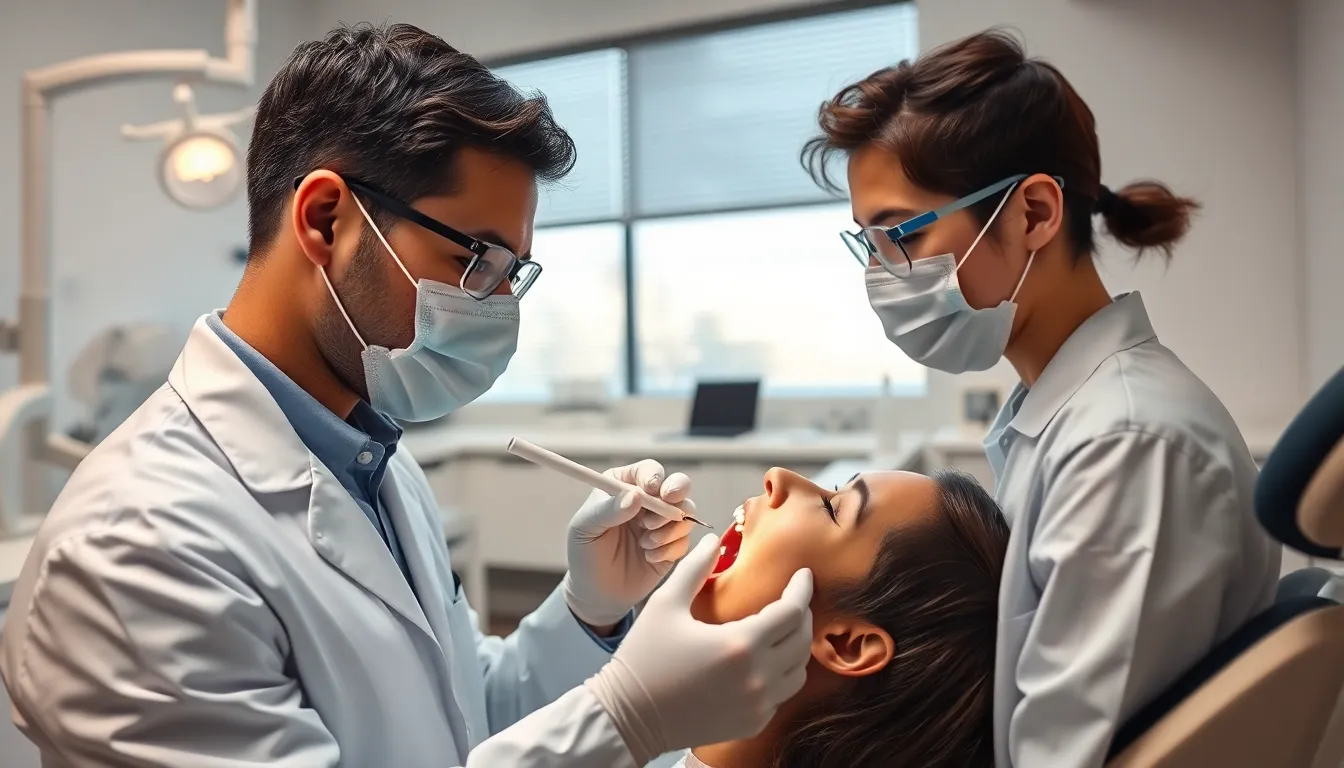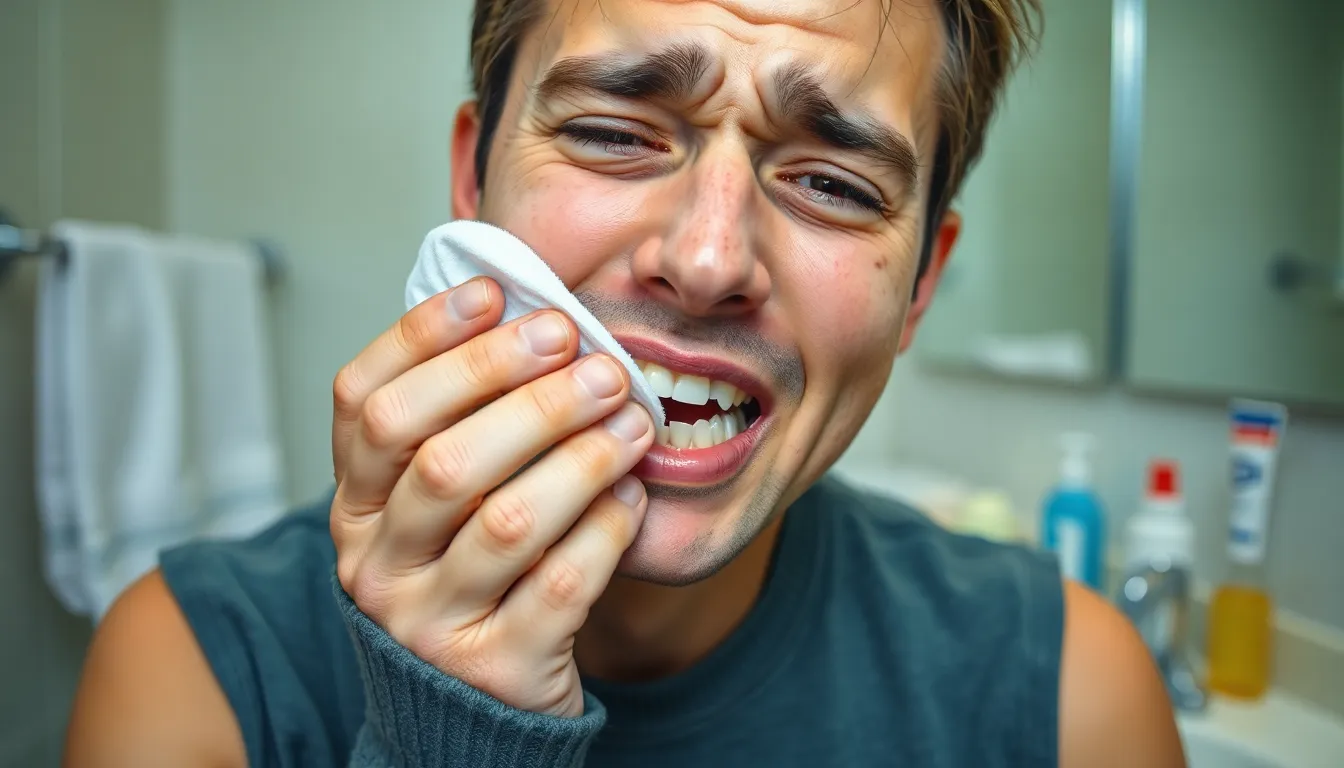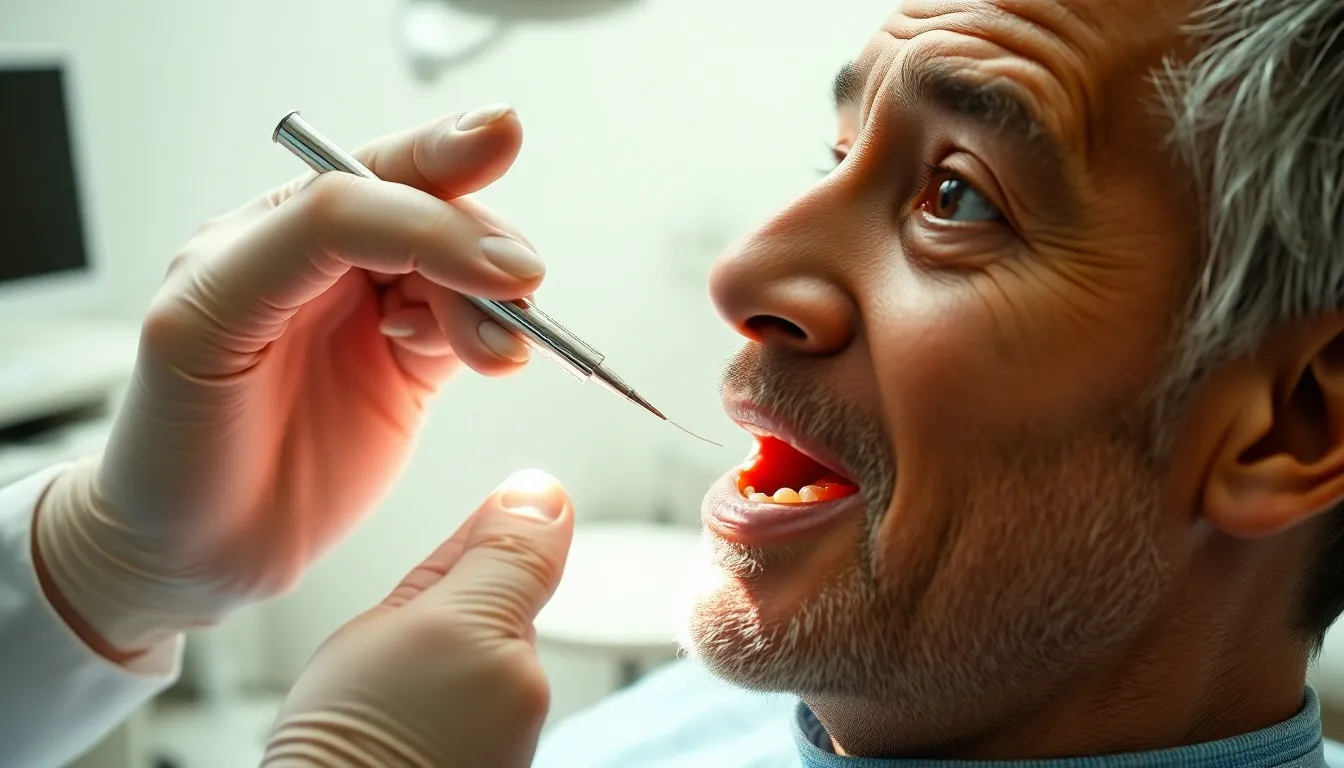Does chipped tooth sensitivity go away? If you’re wincing every time you sip a cold drink or bite into something sweet, you’re not alone. A chipped tooth can cause important discomfort that might have you wondering if you’ll ever enjoy your favorite foods again without pain.
The good news is that tooth sensitivity from a chip often does subside over time, but the timeline and treatment needed depend on several factors. The severity of the chip, the exposure of dentin or pulp, and how quickly you seek treatment all play crucial roles in your recovery. While minor chips might resolve with minimal intervention, more important damage typically requires professional dental care to prevent complications and provide lasting relief.
Understanding Chipped Tooth Sensitivity
Tooth sensitivity from a chip occurs when inner tooth layers become exposed to external stimuli. This exposure triggers nerve responses that result in pain or discomfort, especially when consuming hot, cold, sweet, or acidic foods and beverages.
Why Chipped Teeth Become Sensitive
Chipped teeth become sensitive because the protective enamel layer is compromised, exposing the dentin underneath. Dentin contains thousands of microscopic tubules that connect directly to the tooth’s nerve center (pulp). External stimuli like temperature changes, sweet foods, or even air can travel through these tubules and irritate the nerve, causing that sharp, sudden pain. Larger chips may expose more dentin or even the pulp itself, resulting in more severe sensitivity or pain.
Dr. Todd B. Harris notes, “I’ve treated patients who didn’t realize how much protection their enamel provided until they chipped a tooth. One patient described the sensation as ‘lightning striking inside my mouth’ whenever she drank her morning coffee after chipping her front tooth.”
The Anatomy of Tooth Pain
Tooth pain from chips follows a exact anatomical pathway through your tooth’s structure. The outer enamel serves as your tooth’s protective shield, underneath which lies dentin—a more porous material making up the bulk of your tooth. Beneath the dentin sits the pulp chamber containing nerves and blood vessels. Pain signals originate when stimuli reach the dentin tubules or pulp. These signals travel along the tooth’s nerves through your trigeminal nerve (the fifth cranial nerve) to your brain, which interprets them as discomfort or pain.
Temperature changes create fluid movement within the dentinal tubules, triggering these nerve responses. Pressure changes from biting or chewing can flex the damaged tooth slightly, causing pain when the chip is important enough to weaken the tooth’s structural integrity. Your body’s inflammatory response to the injury may also contribute to persistent sensitivity, especially during the first few days after the chip occurs.
Does Chipped Tooth Sensitivity Go Away on Its Own?

Chipped tooth sensitivity may improve or disappear naturally if the chip is minor and doesn’t expose the tooth’s nerve. When a small chip only exposes the dentin (the softer layer beneath enamel), sensitivity often decreases over time as your mouth adjusts and the dentin forms a protective layer. Severe chips that expose the nerve or cause structural damage typically won’t resolve without dental treatment, and untreated chips can lead to persistent sensitivity, cracks, or tooth decay as bacteria invade through the damaged area.
Timeline for Natural Recovery
Minor chips typically cause sensitivity that lasts from a few days to several weeks before gradually fading as natural healing occurs. After dental repairs like fillings or crowns for more severe chips, sensitivity significantly decreases within a few days to a week, though mild sensitivity to temperature extremes may temporarily linger during healing. Recovery varies between individuals and depends greatly on aftercare—proper rest and avoiding hard or acidic foods helps speed improvement.
“I had a patient who chipped her front tooth on a water bottle,” shares Dr. Todd B. Harris. “She experienced sharp sensitivity initially but followed my advice to use sensitive toothpaste and avoid extreme temperatures. Her discomfort naturally subsided within two weeks, though the cosmetic issue still required bonding to correct.”
Factors That Affect Healing
The severity of the chip plays a crucial role in healing—small chips that spare the nerve can heal naturally, while deep chips require professional treatment. Exposure of dentin or nerve tissue directly correlates with increased and prolonged sensitivity. Maintaining excellent oral hygiene reduces the risk of infection and decay at the chip site. Using desensitizing products such as fluoride toothpaste and professional treatments helps reduce sensitivity during recovery. Dental interventions including fillings, bonding, or root canals effectively resolve sensitivity that doesn’t improve on its own.
Temperature changes dramatically impact healing time, with extreme hot or cold foods potentially prolonging sensitivity. Patients who maintain a soft food diet during recovery typically experience faster sensitivity reduction. The location of the chip matters too—chips on biting surfaces often heal differently than those on the sides of teeth due to different pressure patterns during chewing.
Home Remedies for Chipped Tooth Sensitivity

Managing chipped tooth sensitivity at home can provide important relief while you wait for a dental appointment. These remedies help reduce discomfort and prevent further damage to the affected tooth.
Temporary Pain Management Techniques
Gentle rinsing with warm water immediately after the injury helps clean the area and remove any debris. Applying a cold compress to your face near the injured tooth effectively reduces swelling and numbs the area, providing temporary relief from pain. Taking over-the-counter pain relievers like ibuprofen can manage both pain and inflammation associated with a chipped tooth.
Dr. Todd B. Harris recalls, “One patient came in with a badly chipped molar but had managed her pain remarkably well for three days by avoiding chewing on that side and using cold compresses when sensitivity flared up.” Maintaining good oral hygiene without aggravating the chip prevents infections that could intensify pain. Patients report that eating soft foods and avoiding chewing on the affected side significantly reduces pressure-induced discomfort.
Over-the-Counter Answers
Desensitizing toothpaste contains compounds that block pain signals from the tooth surface to the nerve, providing relief when used regularly. These specialized toothpastes work best when applied directly to the sensitive area with your fingertip and left in place for several minutes before rinsing. Fluoride rinses strengthen remaining enamel and help remineralize exposed dentin, creating a protective barrier over sensitive areas.
“Many patients find combining a desensitizing toothpaste with a fluoride rinse particularly effective,” notes Dr. Harris. “The two-pronged approach both blocks pain signals and strengthens the tooth structure.” Dental wax, available at most pharmacies, can temporarily cover a sharp chip edge to prevent it from irritating your tongue or cheek while waiting for professional treatment. Clove oil, with its natural anesthetic properties, offers another option for temporary pain relief when applied sparingly to the affected area.
Professional Treatments for Chipped Teeth

Professional dental treatments provide effective answers for chipped tooth sensitivity by addressing the underlying damage. Your dentist can recommend various treatment options based on the severity of your chip, ensuring both functional restoration and sensitivity relief.
Dental Bonding and Fillings
Dental bonding effectively treats small to moderate chips by applying a tooth-colored resin to the damaged area. This composite material seals exposed dentin, immediately reducing sensitivity while restoring your tooth’s appearance. The procedure typically takes just 30-60 minutes per tooth and doesn’t require anesthesia for minor chips. Many patients experience immediate sensitivity relief after bonding, as the material creates a protective barrier between the sensitive inner layers and external stimuli.
Dr. Harris recently treated a patient who chipped her tooth on a popcorn kernel. “After applying dental bonding, she called the next day amazed that she could drink cold water without wincing,” he recalls. “Bonding not only repaired the aesthetic damage but eliminated her sensitivity completely.”
Crowns and Veneers
Crowns and veneers provide comprehensive answers for larger chips that compromise tooth structure. Porcelain crowns completely encapsulate the damaged tooth, protecting it from all angles and preventing sensitivity triggers from reaching the nerve. Veneers offer similar protection for front teeth with moderate chips, covering the entire front surface with a thin shell of porcelain or composite material.
These treatments require removing a small amount of tooth structure before placement but deliver dramatic results for sensitivity reduction. Most patients report complete elimination of sensitivity within days of receiving their permanent crown or veneer. The durability of these restorations also ensures long-term protection against recurrent sensitivity.
“I’ve seen patients who suffered for months with sensitivity from a chipped tooth experience immediate relief after crown placement,” notes Dr. Harris. “One patient described it as ‘like someone finally turned off the pain switch’ after we sealed his damaged molar with a crown.”
Root Canal Treatment
Root canal therapy becomes necessary when a chip exposes or damages the tooth’s pulp, causing severe sensitivity or pain. This procedure removes the infected or damaged nerve tissue inside the tooth, eliminating the source of sensitivity at its core. Though often feared, modern root canal treatments use advanced techniques and anesthesia to ensure your comfort throughout the process.
After removing the nerve tissue, your dentist cleans and seals the inner chambers of the tooth, then places a crown for protection. Because the nerve has been removed, the tooth no longer has the capacity to transmit pain signals, resulting in complete elimination of sensitivity. Success rates for root canal therapy exceed 95%, with most patients experiencing immediate relief from the debilitating sensitivity that severe chips can cause.
When to See a Dentist Immediately

Dental emergencies require prompt attention to prevent complications and relieve pain. Don’t delay seeking professional care if you experience any of the following symptoms after chipping a tooth.
Warning Signs of Serious Damage
Recognizing the warning signs of serious tooth damage helps you determine when immediate dental attention is necessary. Large chips that expose the tooth pulp or nerves significantly increase your risk of infection and require urgent treatment. Persistent swelling or throbbing pain after injury indicates potential damage to the internal structures of your tooth. Visible cracks or breakage extending below the gum line represent severe structural compromise that needs immediate professional assessment.
Dr. Todd B. Harris recalls a patient who ignored a seemingly minor chip for several days: “By the time she came in, what started as sensitivity had progressed to severe throbbing pain and facial swelling. The delay allowed bacteria to enter the exposed pulp, resulting in an abscess that required emergency treatment.”
Seek urgent dental care if you experience severe pain or prolonged sensitivity that doesn’t improve with over-the-counter remedies. Swelling or signs of infection around the damaged tooth demand immediate attention to prevent the spread of infection. Difficulty eating or avoiding solid foods due to pain indicates important damage that requires professional evaluation. Jagged or sharp edges from the chipped tooth causing injury to your cheek, tongue, or gums create additional complications that warrant prompt care.
In the meantime, gently rinse your mouth with warm water to keep the area clean. Apply a cold compress to the outside of your cheek to reduce swelling and discomfort. Avoid chewing hard or sticky foods on the affected side until you can see a dentist. These temporary measures help manage symptoms but don’t replace professional dental treatment, which remains essential for preventing infection, relieving pain, and restoring proper tooth function and appearance.
Preventing Further Damage to a Chipped Tooth

After chipping a tooth, preventing additional damage is crucial for reducing sensitivity and avoiding more serious dental issues. Take exact precautions to protect your vulnerable tooth while you’re healing or waiting for treatment.
Avoid biting or chewing on hard foods like nuts, ice, or candy that can worsen the existing chip or cause new damage. Sticky foods also present a risk as they can pull on the damaged area, potentially expanding the chip. Instead, opt for a soft food diet until you’ve received proper dental treatment.
Maintain excellent oral hygiene with gentle brushing techniques. Use a soft-bristled toothbrush and fluoride toothpaste to clean around the chipped area without applying excessive pressure that might aggravate sensitivity. Regular fluoride exposure helps strengthen the remaining enamel and protect exposed dentin.
“I had a patient who cracked a small chip into a much larger fracture by continuing to chew ice after the initial injury,” Dr. Todd B. Harris explains. “What started as minor sensitivity became a crown procedure when the crack extended toward the root.”
Schedule a dental appointment promptly, even if sensitivity seems manageable. Early professional assessment prevents bacteria from entering through the chip and causing infections that complicate treatment. While waiting for your appointment, rinse your mouth with warm water after eating to keep the area clean.
Apply a cold compress to the outside of your cheek for 15-20 minutes if you experience swelling or discomfort around the chipped tooth. This temporary measure reduces inflammation and provides relief until you receive proper dental care.
| Preventive Measure | Benefit |
|---|---|
| Avoiding hard/sticky foods | Prevents worsening of the chip |
| Soft-bristled toothbrush | Reduces irritation to exposed dentin |
| Prompt dental appointment | Prevents infection and complications |
| Warm water rinses | Keeps the area clean |
| Cold compress application | Reduces inflammation and discomfort |
Temporary protection options include dental wax, which you can apply over sharp edges to prevent them from cutting your tongue or cheek. These protective measures won’t fix the chip but can prevent further damage while you await professional treatment.
Conclusion
While chipped tooth sensitivity can be uncomfortable it typically improves over time with proper care. Minor chips may resolve naturally within weeks while more important damage requires professional treatment for lasting relief.
Don’t ignore persistent sensitivity as it could signal deeper issues. Home remedies like sensitive toothpaste and avoiding temperature extremes can provide temporary comfort but they’re not substitutes for dental care.
Remember that prompt treatment not only alleviates discomfort but also prevents complications like infections or further damage. Your dentist has effective answers from simple bonding to crowns that can quickly restore both function and comfort to your damaged tooth.
Frequently Asked Questions
How long does sensitivity from a chipped tooth last?
Sensitivity from a chipped tooth typically lasts from a few days to several weeks, depending on the severity of the chip. Minor chips may heal naturally with diminishing sensitivity over time, while more significant damage will require professional treatment for relief. Individual healing rates vary based on factors like chip location, oral hygiene practices, and how quickly you seek dental care.
What causes sensitivity in a chipped tooth?
Sensitivity occurs when a chip exposes the dentin layer beneath the protective enamel. Dentin contains microscopic tubules connected to the tooth’s nerve center, allowing external stimuli (hot, cold, sweet, or acidic foods) to reach the nerve and trigger pain signals. Larger chips may expose more dentin or even the pulp, resulting in increased sensitivity and discomfort.
Can I treat chipped tooth sensitivity at home?
Yes, you can temporarily manage chipped tooth sensitivity at home while awaiting dental care. Effective remedies include rinsing with warm salt water, using desensitizing toothpaste, applying a cold compress to reduce inflammation, taking over-the-counter pain relievers, and avoiding extreme temperatures. However, these are temporary solutions, and professional dental treatment is still necessary.
When should I see a dentist for a chipped tooth?
Seek immediate dental care if you experience severe pain, prolonged sensitivity, visible pulp exposure, bleeding from the tooth, large chips, or difficulty chewing. Also, if you notice swelling, persistent throbbing pain, or if the tooth feels loose, these are signs of potential serious damage requiring urgent professional attention. Even minor chips should be evaluated within a few days.
What professional treatments are available for chipped teeth?
Professional treatments for chipped teeth include dental bonding (applying tooth-colored resin for small to moderate chips), dental crowns or veneers (for larger chips requiring full coverage), and root canal therapy (when the pulp is exposed). These treatments effectively address the underlying damage and typically provide immediate relief from sensitivity while restoring the tooth’s appearance and function.
How can I prevent further damage to a chipped tooth?
To prevent further damage to a chipped tooth, avoid hard and sticky foods, don’t chew ice or bite fingernails, practice gentle brushing techniques, and use a mouthguard during sports or if you grind your teeth. Apply dental wax to cover sharp edges temporarily, maintain excellent oral hygiene, and schedule a dental appointment promptly even if sensitivity seems manageable.
Will a chipped tooth heal on its own?
No, a chipped tooth will not fully heal on its own. While minor chips may experience reduced sensitivity over time as the body forms protective dentin, the physical damage to the enamel remains. The tooth’s outer enamel lacks the ability to regenerate naturally. Professional dental treatment is necessary to repair the structural damage and prevent potential complications like decay or infection.
Can sensitivity from a chipped tooth come and go?
Yes, sensitivity from a chipped tooth can fluctuate. It may temporarily worsen with temperature changes, pressure from chewing, or consumption of sweet or acidic foods. As your body attempts to protect the tooth, you might experience periods of reduced sensitivity followed by flare-ups when the tooth is stressed. This variability doesn’t indicate healing and shouldn’t delay seeking dental treatment.







